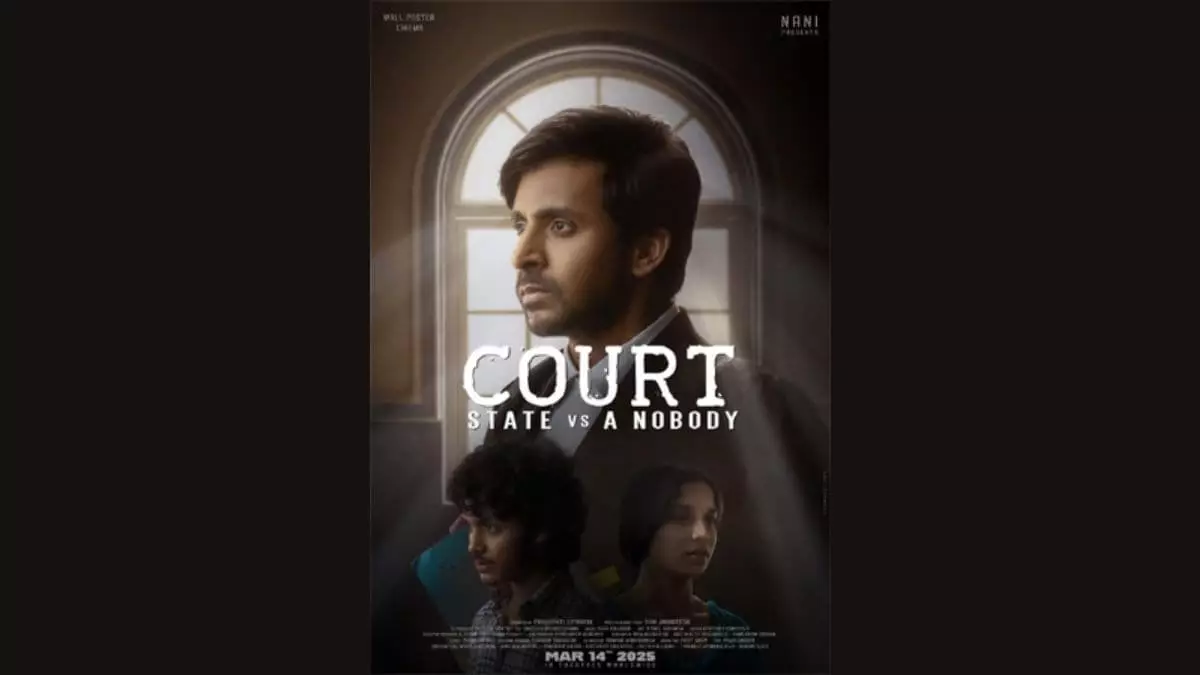“Court – State vs. A Nobody” emerges as a breath of fresh air in the Indian cinema landscape, showcasing a blend of courtroom drama and societal critique. With actor Nani stepping in as the film’s presenter, expectations are undoubtedly high. Directed by Ram Jagadeesh, making his debut, this film not only constitutes a riveting storyline but also serves as a platform for meaningful discourse, especially regarding the controversial POCSO Act. This film has sparked conversations about justice, societal norms, and the often-fragile fabric of familial relationships.
A Complex Narrative Under Siege
At its core is Chandu, a college dropout whose humble beginnings set him on a collision course with the legal system when his love for Jabili—a woman from a conservative background—becomes a target for manipulation. This is not merely a tale of love but a harrowing exploration of how legal frameworks can be weaponized, and how a vulnerable individual can be vilified in the eyes of society. When Jabili’s uncle exploits the POCSO Act to frame Chandu, the film unearths layers of societal ill that lie beneath the surface. It raises critical questions: How often do we see justice served? Who benefits from the enforcement of these laws? The film does not shy away from showcasing the brutal realities faced by those caught in the gears of the law.
Pivotal Performances and Cultural Reflection
The casting choices elevate the film profoundly—Sivaji’s transformation into the villainous uncle showcases genuine acting prowess, and Harsh Roshan as Chandu brings an air of authenticity to a character rife with complexity. Sridevi Appala’s debut is particularly noteworthy as she embodies a character shaped by both traditional values and the pressures of modern love. Meanwhile, Priyadarshi’s portrayal of the rookie lawyer Teja adds a layer of relatability, embodying the underdog spirit that audiences often root for. The film compels us to consider not only individual resilience but the systemic changes necessary to safeguard the vulnerable within society.
The Burgeoning Anticipation
With paid premieres slated for Andhra Pradesh and Telangana, the buzz around this film continues to intensify. It’s no surprise that Netflix has stepped in with a significant deal of Rs. 8 crore for post-theatrical streaming rights. Such a financial commitment for a small-budget film indicates a growing acceptance of thoughtful narratives that challenge the status quo. However, as the digital release date is yet to be confirmed, fans and critics alike are eager to witness how a courtroom drama infused with strong social commentary translates to the screen.
Depth in Screenplay and Direction
Critics have highlighted the screenplay’s intricate handling of legal nuances, allowing viewers to engage with often convoluted legal debates without losing sight of the emotional stakes. Yet, some have rightly pointed out shortcuts in storytelling that occasionally detract from its depth. Nevertheless, the compelling message and powerful performances have bolstered its reputation. It’s a film that dares to question not just the law but societal perceptions of morality and truth.
Through its gripping narrative and thought-provoking themes, “Court – State vs. A Nobody” not only entertains but also educates. It stands as a testament to the shifting landscape of Indian cinema, one that is willing to tackle difficult subjects head-on, and in doing so, inspires a necessary dialogue about justice and human dignity.

